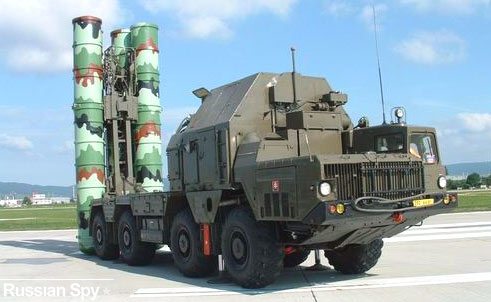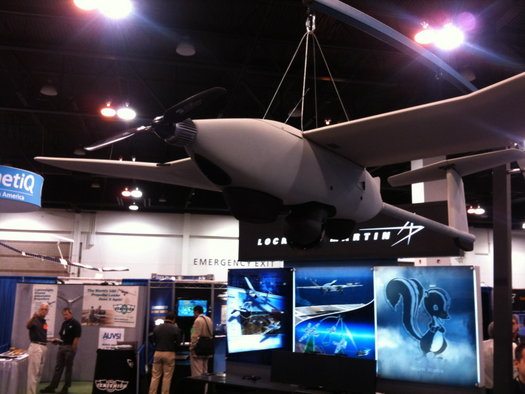Russia vowed on Wednesday not to follow a Western arms embargo on Syria and promised new air defence systems and other military components to President Bashar al-Assad’s regime.
The announcement came just a day after Russia dispatched a large naval flotilla to the region and appeared aimed at dispelling any suggestion of Moscow dropping its controversial support for Assad.
A top Russian arms export official had raised eyebrows in Western capitals earlier in the week by saying that Russia would no longer provide new weapons for Syria.
That same official on Wednesday told reporters that his comments covered only a tiny range of new types of weapons and in no way concerned the military trade that exists between the two allies today.
“Russia has obligations before Syria relating to old contracts — contracts that were signed in 2008 and were later followed by new ones on air defence systems,” the Russian Federal Service for Military Technical Cooperation’s deputy chief Vyacheslav Dzirkaln said.
“They are being fulfilled and they will be fulfilled,” he told Russian news agencies on the sidelines of the Farnborough Airshow near London.
“But we are not signing any new contracts at this stage,” he added in comments echoing ones he had made earlier in the week.
His initial use of that same phrase on Monday drew cautious praise from the US State Department and were met with encouragement from the spokesman for UN Secretary General Ban Ki-moon.
“Obviously, if it were true, it would be a good sign but we are still seeking further clarification from the Russians,” State Department spokesman Patrick Ventrell told reporters.
Dzirkaln explained on Wednesday that the decision not to sign new contracts with Syria while the fighting continued in no way spelled a shift in policy or a decision by Moscow to comply with a Western arms embargo of Assad’s regime.
“One cannot possibly speak of us imposing an arms or military technology embargo on Syria,” Dzirkaln was quoted as saying.
But he said Russia would not be supplying 12 MiG-29M fighters and 36 Yak-130 trainer jets that Syria had been planning to purchase from two Russian production plants after striking preliminary deals.
He said the delivery of that equipment would violate global trade treaties, but did not elaborate further.
Russia last month tried sending a cargo ship to Syria with three repaired attack helicopters as well as elements of an air defence system for President Bashar al-Assad’s regime.
The vessel was forced to return to its Arctic base in Russia after the mission was exposed by the US States Department and its British insurer dropped coverage.
Dzirkaln promised to complete this shipment and stressed that most outstanding contracts now concerned air defence systems that were meant to protect Syria’s border in accordance with international rules.
“We are delivering weapons and military technology of an exclusively defensive nature. This primarily concerns air defence systems but also some spare parts,” he said.
Dzirkaln said Russia was now thinking up ways of delivering the three helicopters “without any losses to us and without any provocations by the interested parties.”
Officials had earlier suggested that an option to send the parts by air had been dropped in favour of a new seafaring mission.











